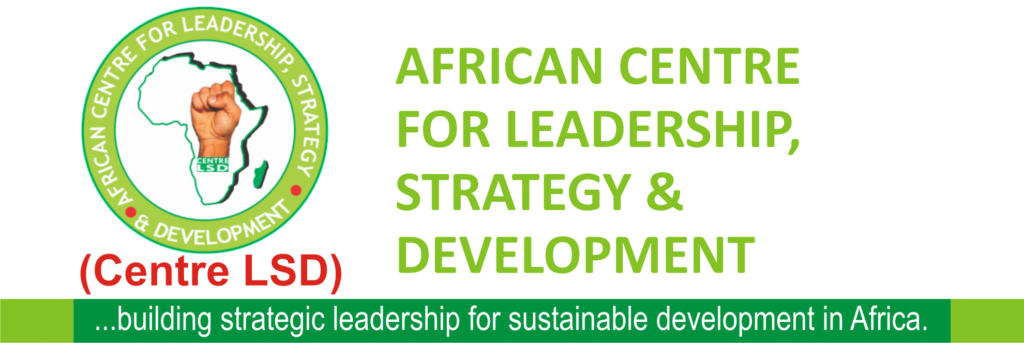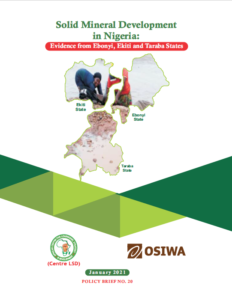- +234 (0)812 463 8252
- [email protected]
- 3B, Niger Avenue, Villa Nova Estate, Abuja, Nigeria
African Centre for Leadership, Strategy & Development
African Centre for Leadership, Strategy & Development

Home » Resource Hub » Publications » Solid Mineral Development in Nigeria (Evideince from Ebonyi, Ekiti and Taraba States)

Nigeria is a resource endowed country. Official statistics suggest that the country has over 44 solid minerals distributed across the 36 States of the country. These natural resources had shaped the country’s pre-independence industrialization trajectory as minerals were both a source of energy (in the case of coal) as well as tradable commodity (e.g., Columbite, Tin, Lead and Zinc). However, the discovery of and focus on crude oil production in the 1970s led to a significant decline in the development of the solid mineral mining industry.
The nationalization policies of the 1970s and 1980s further worsened the state of solid minerals mining in Nigeria. Many foreign investors exited the industry due to poor operating conditions, which set the industry on a downward spiral evidenced by the massive drop in solid mineral’s contribution to Nigeria’s GDP and export. The long neglect of the sector, despite solid mineral abundance, comes at a cost such as deprived alternative sources of energy, employment generation, investment opportunities, foreign exchange, and tax revenues. However, the oil price crisis of 2014, which severely strained Nigeria’s finances and foreign exchange earnings, inspired an urgency to diversify Nigeria’s economy away from oil as the major source of government revenue and foreign exchange earnings. This, amongst other things, led to a renewed interest to develop Nigeria’s solid mineral industry as a major employer of labor and a reliable source of tax and foreign exchange revenue.